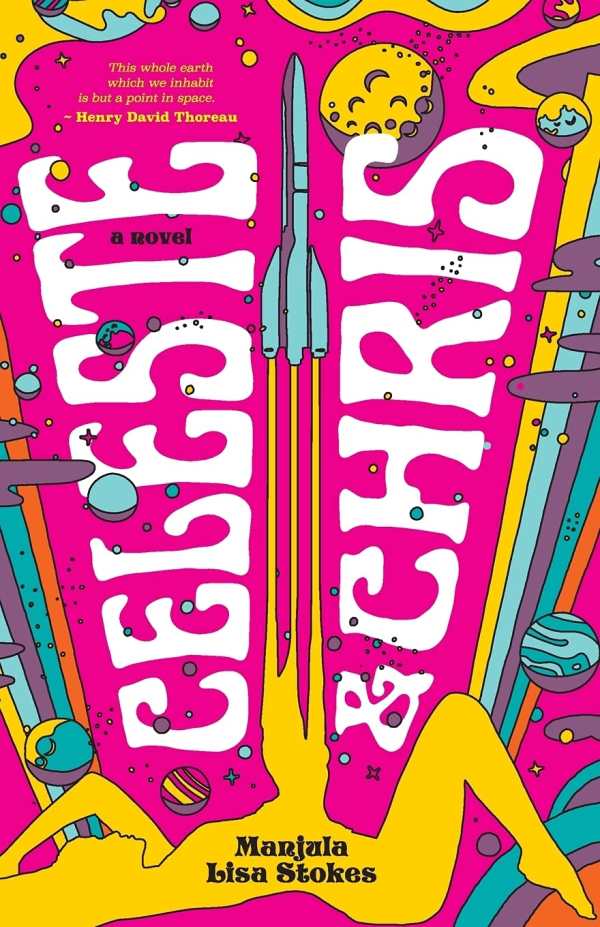Celeste and Chris
The coming-of-age buddy novel Celeste and Chris features a tantalizing peek into a bygone era.
Set in the 1960s, Manjula Lisa Stokes’s novel Celeste and Chris concerns the loving facets of two soul twins’ lifelong friendship.
In elementary school, Celeste and Chris discover that they share the same birthday. They also connect as playground eccentrics: Chris plays with a stuffed rat, and Celeste wants to take care of chimps in space when she grows up. Parental love is critiqued in this first part of their story, wherein Celeste’s parents—Catholics who care more about appearing pious than they do about caring for Celeste—call her and Chris names. Meanwhile, Chris doesn’t tell his parents he’s gay for fear of rejection. The friends rely on one another for support: Celeste vows to protect Chris, even if he doesn’t love her like she loves him.
Celeste and Chris remain friends through rocky childhoods, the anti-war and free love movements, and into a fresh start. In their junior year of high school, Chris is sent to military school, and Celeste runs away to be near him. After their graduation, they share a remote California shack and barn with Matt, a Vietnam war draft dodger, and Luc, an art teacher from the military school. Celeste has a baby, Thoreau.
As the novel moves from Celeste and Chris’s childhood into their adulthood, it shifts its focus to the allure of alternatives to traditional family structures. Celeste and Chris discover sex, and the novel is graphic in describing their various couplings. Here, sex is depicted as an expression of love as well as an instrument of torture and manipulation. Later, Celeste and Chris return home with new perspectives, working to forgive their parents and accept their own gifts—Chris’s comic talent and Celeste’s mothering.
Setting a driving pace, the chapters are episodic arcs comprised of vibrant moments, full of California verdancy and virility. But these sequences cover longer spans of time as the text progresses, and the story loses the immediacy that marked its early scenes. And the book’s cartoonish illustrations and short, direct sentences, many of which are composed of phrases or lists, set a too youthful tone.
Celeste and Chris’s exchanges with each other and others are candid and ferocious; often, they highlight the complexities of love. But while Celeste transforms to represent a nuanced vision of a new kind of love, Chris does not change as much. He recognizes that he is gay from early age; when he falls in love, he proves loyal. Celeste, meanwhile, dates a bevy of people and entertains many vocational dreams. Only her commitment to Chris is unchanging, contributing to the book’s satisfying, full-circle ending that is a blend of symmetry with unexpected twists.
With a tantalizing peek into a bygone era, the novel Celeste and Chris focuses on coming of age and love during the Vietnam War era.
Reviewed by
Mari Carlson
Disclosure: This article is not an endorsement, but a review. The publisher of this book provided free copies of the book and paid a small fee to have their book reviewed by a professional reviewer. Foreword Reviews and Clarion Reviews make no guarantee that the publisher will receive a positive review. Foreword Magazine, Inc. is disclosing this in accordance with the Federal Trade Commission’s 16 CFR, Part 255.

